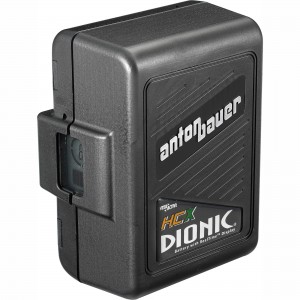Congress, Airlines Tighten Grip on Lithium Ion Battery Rules and Regulations
Story Highlights
On April 19 the United States Senate overwhelmingly passed its Federal Aviation Administration (FAA) reauthorization bill by a margin of 95 to 3. The Senate demonstrated a unique ability to work together in a bipartisan way that should make air travel and cargo shipment safer and more efficient. However, the bill contains language that gives reason for pause as it will negatively impact the ability for sports production professionals to transfer lithium ion batteries. Section 2317 of the bill further authorizes the FAA to throw up additional obstacles to moving lithium ion batteries both by passenger and cargo aircraft.

The U.S. government is taking steps to make it more difficult to ship Lithium Ion batteries via air transport.
Specifically, the bill codifies the International Civil Aviation Organization (ICAO) February rules that prohibit the bulk air transportation of lithium ion batteries on passenger aircraft and prohibits the bulk shipment of batteries with an internal charge greater than 30%. The bill also explicitly points out FAA’s authority to regulate a passenger’s ability to bring lithium ion batteries into passenger cabins.
A quick read of these provisions may not raise many red flags until you consider the fact that ICAO’s new rules have already begun disrupting the supply chain. For example, an Australia based hearing aid company utilizing Swiss batteries has had to change its supplier and logistics around the new regulations – and stories like this continue to roll in.
ICAO’s provisions are currently set to expire in 2018 – but this bill proposes making them permanent and setting precedent for further battery regulations.
As the bill moves to the House for approval, it is unclear how its representatives will respond to the Senate’s version. Representative Bill Shuster and other members of the House Transportation and Infrastructure Committee see privatizing air traffic control as a legacy issue – and it is not included in the Senate bill. Assuming the House and Senate reach a deal, there is less information regarding how the White House will respond.
While the House and Senate go back and forth, airlines are also changing their policies on shipping lithium ion batteries. Lufthansa Cargo has tightened its restrictions on dangerous goods shipments covered under ICAO’s UN3480 and UN3090.
The airline’s new rules do not prevent batteries packed in or with equipment, as a camera or related audio equipment would be, but this airline and others are committed to looking further into the issue.
As you can tell, there are several moving pieces at work here and regulations are being written in real time. Now is the time to let your voice be heard in Washington so that regulations do not arise that harm your business.
For more information and to get involved, please contact Logistics Supply Chain Coalition Executive Director James Voyles at [email protected].
